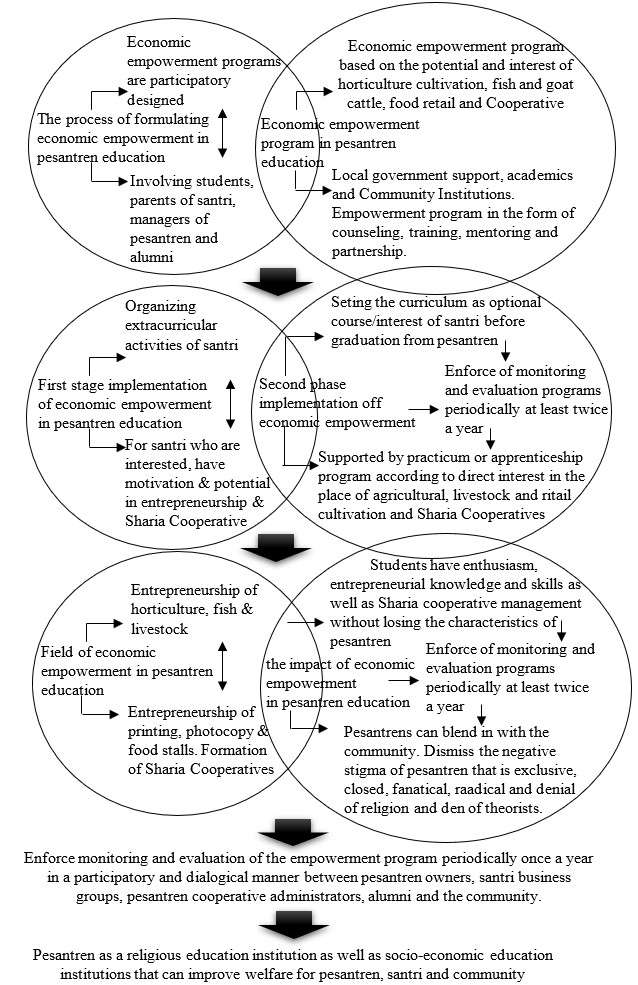Economic Empowerment of Islamic Student Throught Optional Course Learning in Boarding School for Harmonization and Preventing Negative Stigma
Abstract
The research aims to design economic empowerment model of santri in pesantren education. The study used Participatory Rural Appration method and purposive informant selection consisting of pesantren board, teacher, santri and community. Data ware collected through documentation analysis, direct observation, interviews, and Participatory Decision Making. The location of the study was determined at pesantren of Al-Muttaqin in Cirebon, West Java and Darusy Syahadah in Boyolali, Central Java. The study was analyzed by PRA through triangulation to find the diversity of difference and similarity as well as data verification. The results show (1) Pesantren has motivation and potency to make economic institution through empowerment activity of santri like horticulture cultivation, fish and goat farm, retail and also cooperation. (2) Empowerment activities, especially through education programs, can provide students with entrepreneurial skills, independence and welfare, create harmonization with the community and anticipate the negative stigma of exclusive, closed and radical of pesantren.


This work is licensed under a Creative Commons Attribution 4.0 International License.
Copyright for this article is retained by the author(s), with first publication rights granted to the journal.
This is an open-access article distributed under the terms and conditions of the Creative Commons Attribution license (http://creativecommons.org/licenses/by/4.0/).








1.png)

















